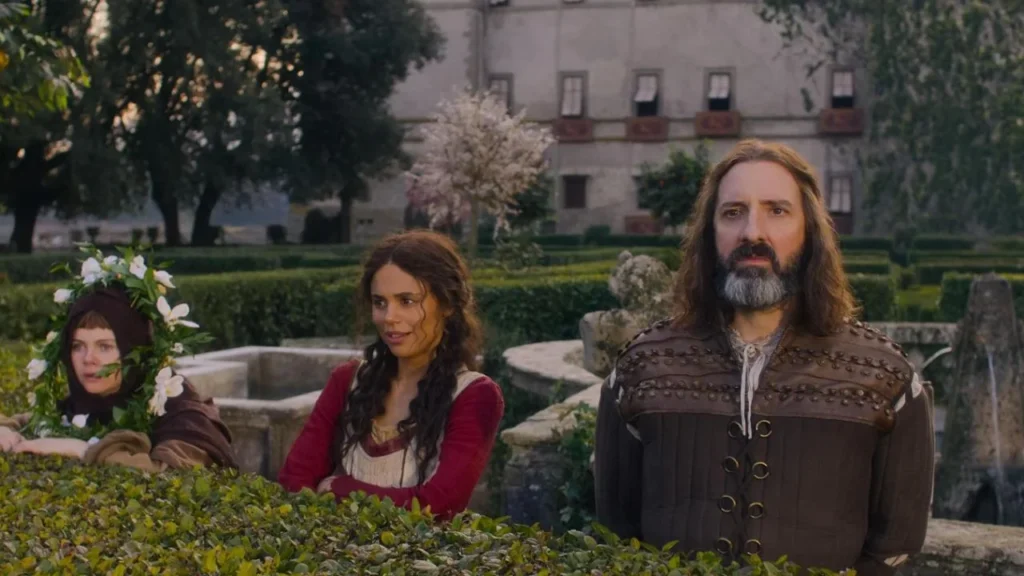
Giovanni Boccaccio’s The Decameron, a literary masterpiece exploring love, loss, and life during the Black Death, has inspired countless adaptations. From Shakespeare to Pier Paolo Pasolini, artists have grappled with the complex tapestry of stories woven by Boccaccio’s noble characters. However, Netflix’s latest attempt to reimagine this classic tale is a catastrophic misstep.
Read More interesting articles on trendystring.com
Rather than delving into the rich source material, Netflix’s The Decameron takes a superficial approach, focusing on the superficial lives of a group of wealthy individuals seeking refuge from the plague. The series replaces the original’s nuanced exploration of human nature with a shallow, soap opera-esque drama.
Despite a talented cast featuring Tony Hale, Leila Farzad, and Zosia Mamet, the performances are hindered by the lackluster script. Hale, known for his comedic brilliance in Veep and Arrested Development, struggles to find depth in his role as Sirisco, the villa’s steward. Farzad’s Stratilia offers a glimmer of authenticity amidst the chaos, while Mamet delivers a predictably over-the-top performance as the entitled Pampinea.
Karan Gill and Amar Chadha-Patel showcase their acting abilities, bringing a sense of gravitas to their characters. Gill’s portrayal of a conflicted nobleman and Chadha-Patel’s charismatic doctor are among the few highlights of the series.
The original Decameron is a masterclass in storytelling, confining characters within a limited setting to reveal their true nature. Modern examples of this “bottle episode” format include 30 Rock’s “MILF Island” and Succession’s “Connor’s Wedding.” Netflix’s adaptation fails to capture this essence, opting for a convoluted plot filled with nonsensical character arcs and jarring anachronisms.
The series’ soundtrack is another misstep, featuring a jarring mix of 1980s and 1990s pop hits that clash with the supposed 14th-century setting. The costume design is equally disappointing, lacking historical accuracy and resembling a poorly executed Renaissance fair ensemble.
In a recent New York Times article, director Andrew DeYoung claimed that the series “touched upon what we just went through without being didactic.” However, The Decameron fails to offer any meaningful commentary on contemporary issues. While the series touches on themes of wealth inequality and class disparity, it does so with a heavy-handed approach that lacks subtlety.
Compared to other acclaimed pandemic-themed works like Station Eleven and The Last of Us, Netflix’s The Decameron is a pale imitation. These shows successfully blended compelling storytelling, complex characters, and thought-provoking themes to create unforgettable viewing experiences.
Ultimately, Netflix’s The Decameron is a missed opportunity to adapt a literary classic for modern audiences. By prioritizing style over substance, the series has produced a forgettable and disappointing product.
Watch Trailer